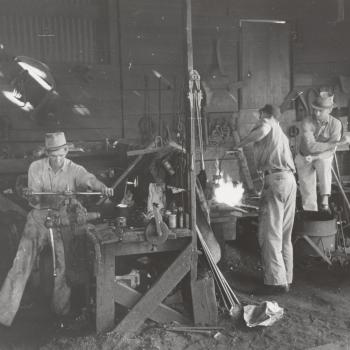I’m against social distancing. I’m into physical distancing instead. There is already too much social distance in our country.
Covid-19 is accompanied by a dramatic increase in the amount of time people spend alone. “People last year spent far less waking time—an hour and a half less [per day], on average—with people outside their own household,” write Ben Casselman and Ella Koeze in N.Y. Times (7/29/21), summarizing a report from the U.S. Bureau of Labor Statistics (www.bls.gov). Time spent all alone increased by about one hour per day. Of course, Covid-19 restrictions on visitors increased the loneliness of those in nursing homes. In general, seniors spent the most time alone,” says N.Y. Times. But teenagers too were alone: One and a half hours more each day than before Covid-19.
Covid-19 is not the cause of being alone; it only accelerates a 50-year societal trend. Robert Putnam of Harvard University tracks the loss of social capital, of togetherness. His 2000 book, Bowling Alone (Simon & Schuster) exhaustively crunches all the numbers to conclusively prove the steady depletion of community life in our society since about 1970. His latest report with Shaylyn Romney Garrett is titled The Upswing (Simon & Schuster, 2020). The two discover that our current separateness is not brand new, yet isolation has not always been so. In a parallel to today, our society was individualistic from the late 1800s into the early 20th century (the Gilded Age). Inequality was extreme; culture was polarized. However, our society gradually became more cooperative as the 20th century evolved. Bowling leagues, clubs, denominations, veterans groups, civic endeavors, associations, school boards, neighborhood organizations and like attracted members and enriched society. But then, starting in about 1970, there was a major relapse.
Sustained isolation harms individuals. We become pessimistic. We are prone to scammers—those soliciting over the phone and those peddling conspiracies on cable TV. It is worth recognizing that loneliness and isolation can just as readily occur in big cities with crowded events as it can in rural towns.
Sustained isolation harms society. A sense of being a victim can overwhelm any impulse for the improvement of institutions, neighborhoods and culture at large. Collective virtue, which is acquired and practiced in social interaction, gives way to collective apathy or at times to narrow, one-off outbursts of fragmented dissatisfaction. A healthy give-and-take over differences is replaced by uncivil culture wars over abortion, same-gender unions, a woman’s place in society, the status of science and other issues. In fact, as the affliction of loneliness grows, individuals grasp for identity in an affiliation with extreme factions.
This analysis is totally wrong, some say. The boring social groups of the past are replaced by lively social media. That’s where today’s young adults meet and interact.
Facebook, which owns other major social platforms, pitches community in all of its reports, its publicity and its Congressional testimony. Nonsense, writes John Miller in America magazine (8/21). Facebook is selling community but it can’t really build it. Some of its executives and engineers have so little experience of real community that they half-believe the company’s line. Other Facebook leaders are fully aware that the “company’s business model relies on making money by selling advertising to companies based on information it has gathered about its users.”
The presumption that healthy connectivity is aided by computers is backward. Computer-aided connections are a symptom of the loneliness epidemic. By design, they turn up the volume of disagreement and accentuate slights and misunderstandings. They add to the widening polarization of isolated factions from the common square of democratic conversation. Technology, by nature, individuates. Policing the content of Facebook and other sites is not the remedy.
What can be done? To be continued…
Droel edits a printed newsletter on faith and work, INITIATIVES (PO Box 291102, Chicago, IL 60629)










